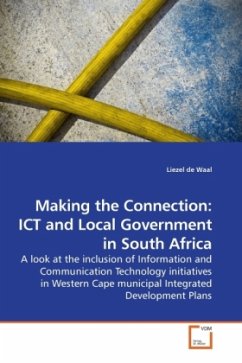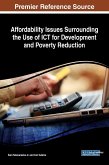The study examines the Western Cape municipal Integrated Development Plans (IDPs) and questions whether these IDPs include Information and Communication Technology (ICT) initiatives that promote development. IDPs are used by municipalities as multi-sectoral plans that provide situation analyses of municipal areas and determine development priorities in municipal areas. These development priorities must be met within certain budget and time constraints. Technology, such as the Internet and cellular telephones, has had various influences on society. One of these influences includes the possible application of ICT for the purpose of development. The various theoretical issues discussed in this study include the transformation/democratisation of local government in South Africa and the establishment of developmental local government. Various issues concerning the use of ICT for development are also discussed and they include the Information Society , the Digital Divide and ICT for development. This discussion emphasises that success of ICT initiatives for development depends on the nature of the underlying policy agenda; this agenda must be demand-driven and pro-poor.







